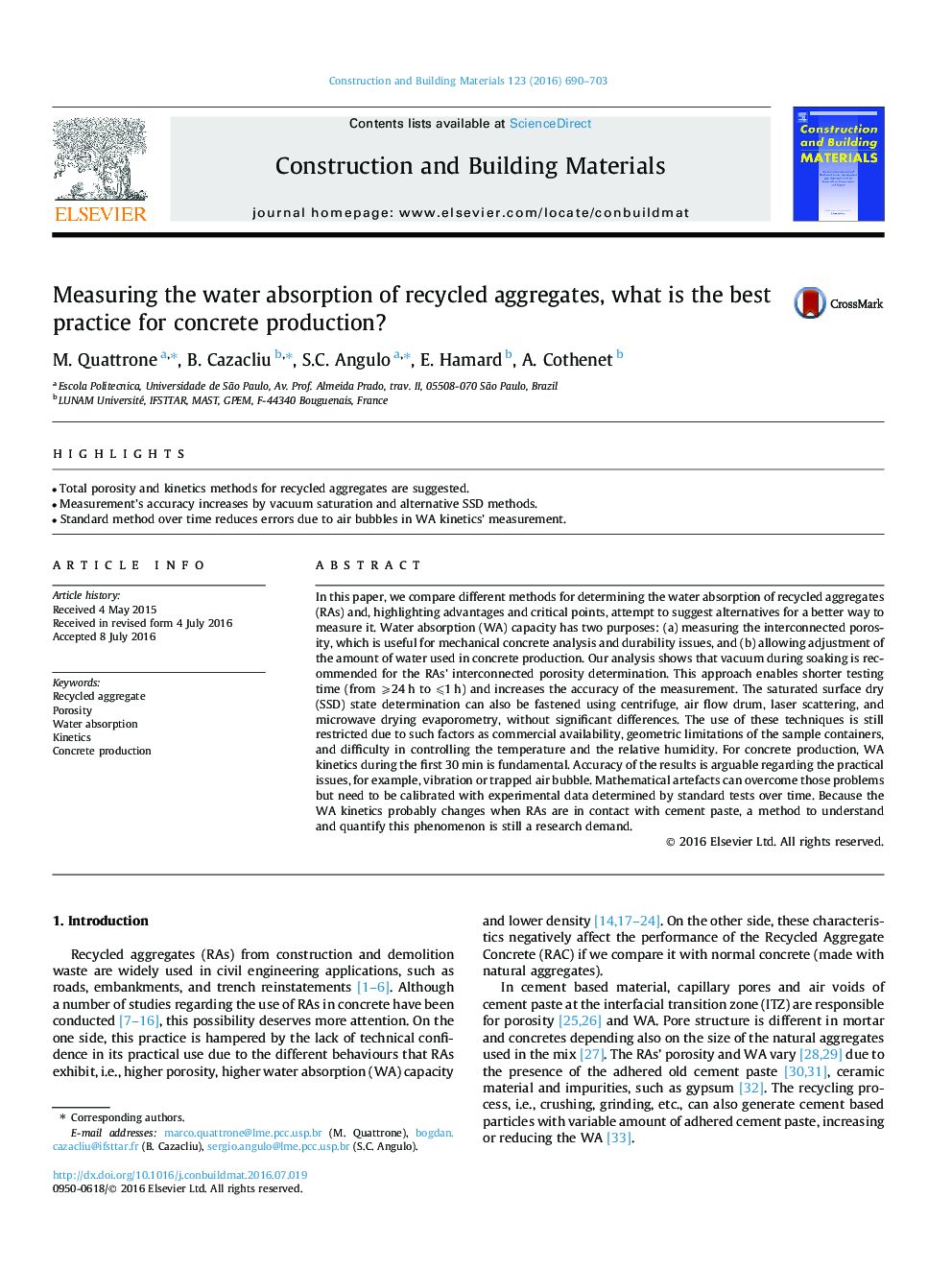| کد مقاله | کد نشریه | سال انتشار | مقاله انگلیسی | نسخه تمام متن |
|---|---|---|---|---|
| 255793 | 503530 | 2016 | 14 صفحه PDF | دانلود رایگان |
• Total porosity and kinetics methods for recycled aggregates are suggested.
• Measurement’s accuracy increases by vacuum saturation and alternative SSD methods.
• Standard method over time reduces errors due to air bubbles in WA kinetics’ measurement.
In this paper, we compare different methods for determining the water absorption of recycled aggregates (RAs) and, highlighting advantages and critical points, attempt to suggest alternatives for a better way to measure it. Water absorption (WA) capacity has two purposes: (a) measuring the interconnected porosity, which is useful for mechanical concrete analysis and durability issues, and (b) allowing adjustment of the amount of water used in concrete production. Our analysis shows that vacuum during soaking is recommended for the RAs’ interconnected porosity determination. This approach enables shorter testing time (from ⩾24 h to ⩽1 h) and increases the accuracy of the measurement. The saturated surface dry (SSD) state determination can also be fastened using centrifuge, air flow drum, laser scattering, and microwave drying evaporometry, without significant differences. The use of these techniques is still restricted due to such factors as commercial availability, geometric limitations of the sample containers, and difficulty in controlling the temperature and the relative humidity. For concrete production, WA kinetics during the first 30 min is fundamental. Accuracy of the results is arguable regarding the practical issues, for example, vibration or trapped air bubble. Mathematical artefacts can overcome those problems but need to be calibrated with experimental data determined by standard tests over time. Because the WA kinetics probably changes when RAs are in contact with cement paste, a method to understand and quantify this phenomenon is still a research demand.
Journal: Construction and Building Materials - Volume 123, 1 October 2016, Pages 690–703
